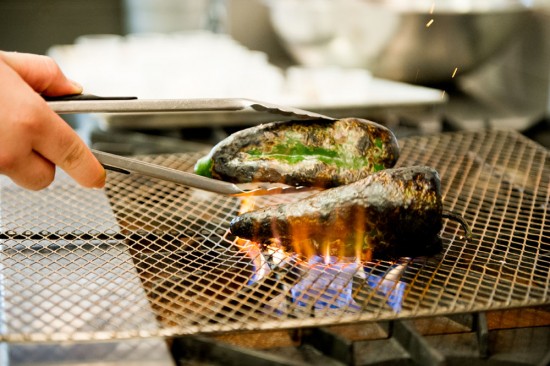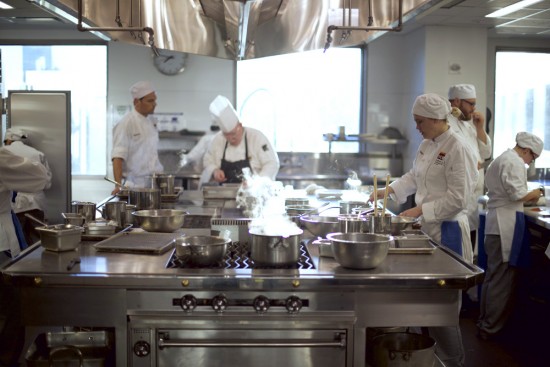Like the old phrase, the second module of the Culinary Arts program at ICE is literally a lesson on taking—or rather, managing—heat in the kitchen. For me, that meant facing my fears—of fire and overcooking proteins—and learning a lot more about cooking, and myself, in the process.
After successfully completing “mod 1,” as students call the first section of our program, I felt that my basic skills were in a good place. I was quicker with my knife skills, beginning to understand fabrication and loving all that I was learning in class. Mod 2 was a different story—with a new chef instructor and numerous hurdles to conquer.
This mod is where we learn to actually cook, and boy, did we ever. From sautéing to deep frying, braising to poaching, Chef Sam Kadko taught it all. For future students who are wondering how to survive unscathed and make the most of this mod—I have a few pieces of advice:
Don’t be afraid.
Yes, there is fire and sometimes there are flare-ups. And when you’re cooking on the high-powered ranges, there’s a good chance you may get burned. But that’s all part of working in a professional kitchen, so the sooner you get over your fears, the more successful you’ll be. It took a few days of feeling nervous around popping oil and unexpected flare-ups—and some teasing from my classmates—for me to feel comfortable at the stove.
However, once I was able to get over that initial fear (and realized that everything in professional kitchens is designed to be much less flammable than home kitchens), I found myself able to use the heat to my advantage and finish dishes more successfully.
Prepare for class before class.
When you’re dealing with fire, boiling water and other time-sensitive elements, preparation leads to success. In short: do your homework. Reading the lessons and writing out the recipes before class cemented the information in my mind before we began cooking. Taking notes was essential, as Chef Sam supplied many facts, tricks and shortcuts that weren’t in our readings.
Volunteer. For those, like me, who don’t have previous experience in a professional kitchen, volunteering is a great way to meet others in the industry. I signed up for as many volunteer events as I could fit into my busy schedule. I was lucky enough to work alongside two former contestants from Top Chef at the Food Network & Cooking Channel New York City Wine and Food Festival. Some of my other classmates have received job offers through these volunteer events! Start checking the ICE volunteer boards and sign up. It’s not just work—it’s fun!
Start researching externships now. Even though you don’t have to start trailing for externships until mod 3 or 4, it’s important to start researching the job opportunities that interest you early on in your education. Want to work in restaurant kitchens? Think about the size of the operation and what style of food most appeals to you.
Are you interested in intricate plating techniques, or do you prefer a more casual approach? Long term, are you more interested in positions outside of restaurant kitchens? During mod 2, your ICE Career Services counselor will meet with you to discuss your options, and already having some ideas helps them tailor their recommendations to your career goals.
Have fun!
This module has so many amazing techniques and delicious recipes. The first time you successfully execute a recipe, you will feel like you conquered the world! And of course, it is awesome to taste all the fruits of your labor.
Ready to start your culinary career? Click here to receive free information about ICE’s Culinary Arts program.






